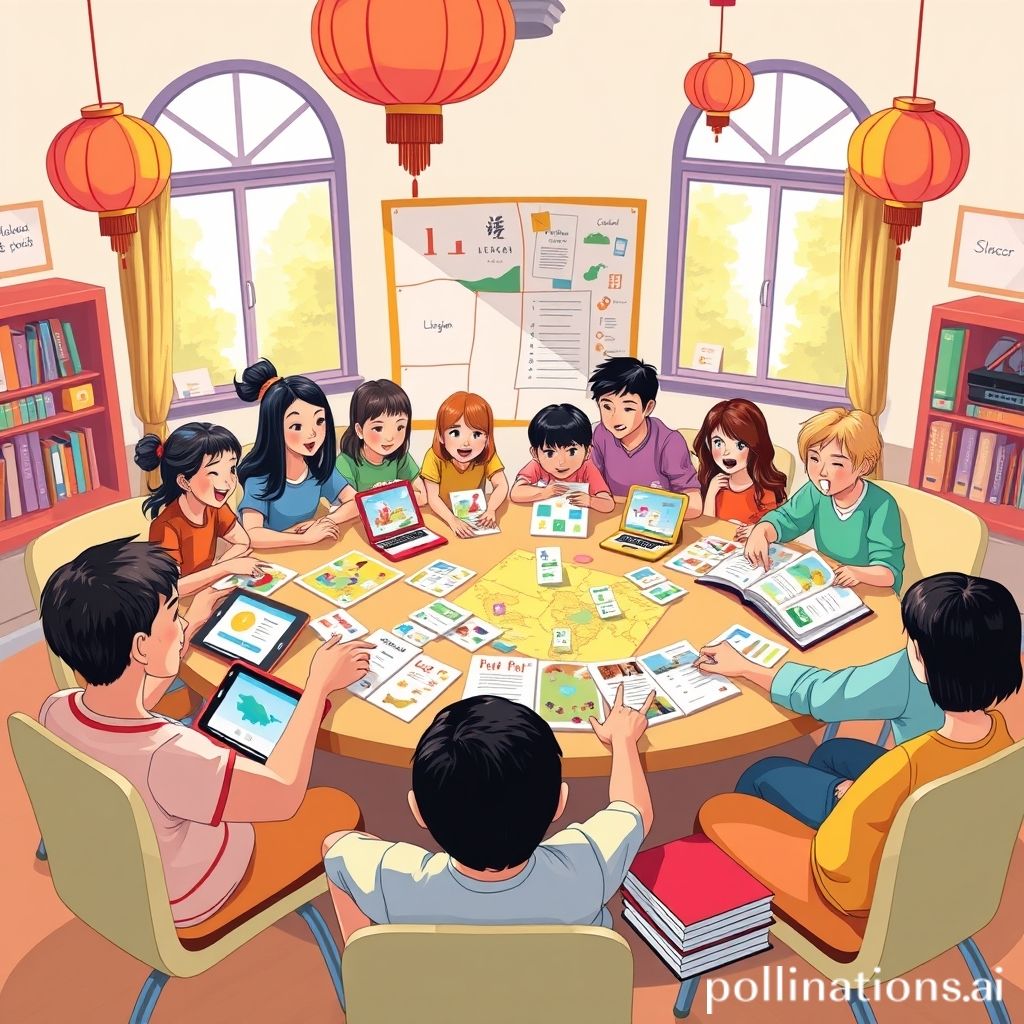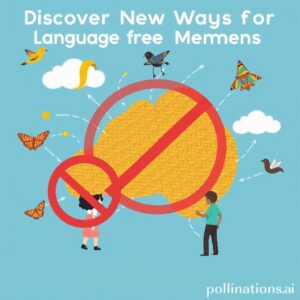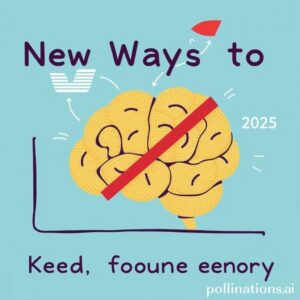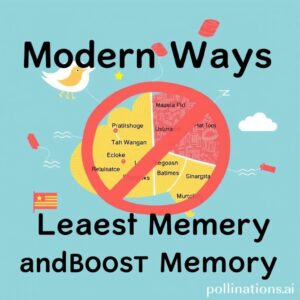Today’s Advancements in Language Learning and Memory Enhancement
Estimated reading time: 6 minutes
- Technological advancements like AI and VR are transforming language learning.
- Cultural exchanges enhance language acquisition by connecting learners to the culture.
- Microlearning fits learning into busy schedules for effective retention.
- Memory enhancement techniques are improving cognitive abilities through new methodologies.
- Lifelong learning opportunities allow adults to continue expanding their language skills.
- Technological Innovations in Language Learning
- Trending Learning Approaches
- New Demographics and Goals
- Advancements in Memory Enhancement
- Memory Enhancement Technologies
- Conclusion
- FAQ
Technological Innovations in Language Learning
The first stop on our adventure is the world of technology. Imagine having a magical teacher who knows exactly what you need to learn. Well, thanks to artificial intelligence (AI), tools like Duolingo and Babbel can do just that! They customize your lessons based on how well you’re doing, kind of like a video game that levels up with you. These tools provide real-time feedback on your pronunciation and grammar, making learning feel like a game!
Immersive Technologies
Next, let’s talk about Virtual Reality (VR) and Augmented Reality (AR). These are like magic windows to other worlds! With VR and AR, you can practice speaking and listening in lifelike situations—like ordering dumplings in a Chinese restaurant or chatting with friendly pandas. This helps you remember what you learn by connecting it to real-life experiences.
Gamification
Learning isn’t just about books and lessons—it can also be fun! Gamification is when language learning apps turn studying into a game, complete with challenges and rewards. It feels a bit like going on a treasure hunt! This makes you want to keep coming back to learn more. Discover more about gamification here.
Big Data and Personalization
Imagine if your favorite ice cream shop had a personal ice cream flavor just for you. That’s what big data does in language learning! It helps create special learning paths based on what you know and what you need to work on. By tailoring your lessons, you can learn more effectively and enjoyably. Learn about this here.
Trending Learning Approaches
Microlearning
Sometimes, less is more. Microlearning breaks down language lessons into small, quick bites—perfect for busy bees! You can learn in just a few minutes every day, making it easier to remember what you studied. Find out more here.
Cultural Competency
Learning about a language is also about understanding the culture behind it. Many programs now offer cultural exchanges where you can connect with people from different countries. Imagine making friends from China while you learn to write beautiful Chinese characters! Explore cultural competency here.
Lifelong Learning
Learning doesn’t have to stop after school! There are more and more options for adults who want to keep improving their languages. Just like you can keep adding stickers to your collection, adults can keep adding skills to their toolbox through modular courses that help them learn at their own pace. Check out lifelong learning here.
New Demographics and Goals
Soft Skills Development
Learning languages is super important, especially when it comes to job skills. Knowing how to communicate well and connect with others is like having a golden ticket in today’s world. Multilingualism, which means speaking many languages, helps you build those soft skills! Learn about soft skills here.
Global Influence of Mandarin
Have you ever thought about learning Mandarin? It’s one of the most important languages in the world right now! As more people want to learn it, opportunities for those who speak Mandarin are growing. Find out more on Mandarin influence here.
Multilingualism Demand
In a world that connects us all, speaking multiple languages is like being a superhero! Employers are looking for heroes who can speak more than one language, and new learning platforms make it easier to learn many languages at once. Discover the demand for multilingualism here.
Advancements in Memory Enhancement
Now, let’s talk about how we can make our brains work even better! Just like how a superhero trains to be strong, we can do things to help our brains stay sharp.
Neuroscience and Cognitive Training
Studies show that learning new languages can make your brain healthier! Bilingual people often have better memory and thinking skills. Just like working out your muscles helps your body, learning languages helps your brain stay fit. Learn about brain benefits here.
Impact of Foreign Language Learning
When you practice a new language, your brain forms new connections—like building new Lego structures! Learning regularly helps you to remember things better and helps your brain be faster and more focused. Discover the impact of foreign language learning here.
Elderly Language Learning
It’s never too late to learn something new! Older adults who learn languages can improve their memory and attention, too! It’s like picking up a new hobby that keeps your brain happy and active. Find out more about elderly learning here.
Memory Enhancement Technologies
Artificial Intelligence and Big Data
AI is playing a big part in understanding and improving memories. It helps researchers find ways to keep our minds sharp and could improve learning tools for everyone. Explore memory enhancement technologies here.
Innovative Therapies
There are cool new therapies that can help with memory, like special magnetic machines and new drugs. These treatments might help people with memory problems in the future! Learn about innovative therapies here.
Practical and Lifestyle Changes
You can improve your memory by doing fun activities, like playing games, exercising, and even mindfulness exercises! Just like a superhero needs to train their body, you should train your mind for the best results. Find out practical tips here.
Conclusion
Wow! There are so many exciting advancements in language learning and memory enhancement. Technology, neuroscience, and creative methods are changing the way we learn languages and remember things. Whether you’re interested in learning beautiful Chinese characters or exploring cool Chinese culture, these new tools and approaches can make your journey easier and more fun!
As you discover the world of languages, remember: learning is a lifelong adventure! If you want to explore our offerings in teaching Chinese characters and culture, or if you have any questions, don’t hesitate to contact us. Let’s embark on this journey together, one character at a time!
FAQ
Q1: What are the key benefits of learning a new language?
A1: Learning a new language can enhance communication skills, improve cognitive function, and open up cultural opportunities.
Q2: How does technology play a role in language learning?
A2: Technology, particularly AI and immersive tools like VR, offers personalized learning experiences and real-time feedback to enhance the learning process.
Q3: What is microlearning?
A3: Microlearning involves breaking down content into smaller sections to make it easier to absorb and retain information.
Q4: Can older adults benefit from learning new languages?
A4: Yes! Older adults can improve memory and cognitive function by engaging in language learning.
Q5: What is the significance of multilingualism in today’s job market?
A5: Multilingualism is increasingly valued by employers, as it enhances communication skills and cultural understanding in a globalized world.



